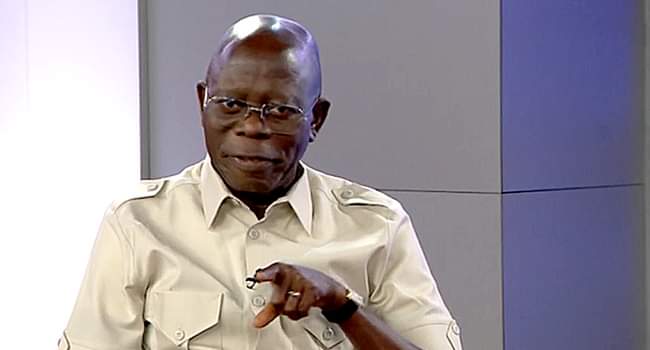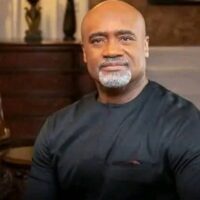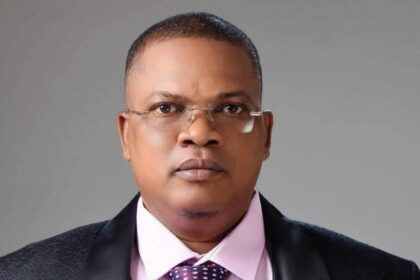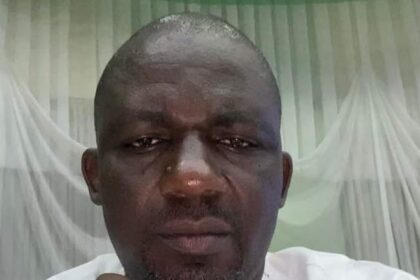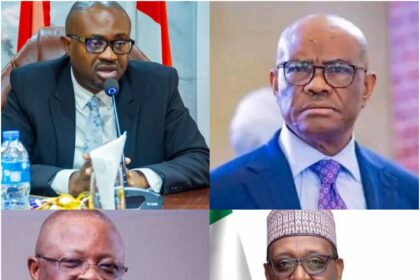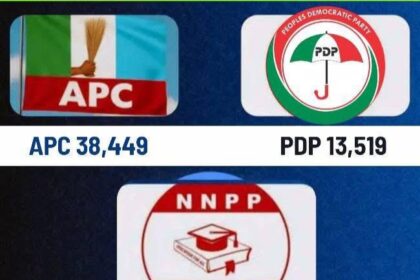Senator Adams Oshiomhole has highlighted the worsening financial situation for Nigerian workers, asserting that today’s minimum wage leaves them poorer than workers from previous decades.
Speaking at a lecture for the Executive Intelligence Management Course 17 at the National Institute of Security Studies in Abuja, Oshiomhole drew a stark comparison between past and present wages.
He noted that although the current N70,000 minimum wage was meant to support workers, it amounts to just $42 when converted to U.S. dollars at the current exchange rate, a sharp fall from previous wage values.
“When the minimum wage in Nigeria was established under President Shagari, around 1981, it was about N125, which was equivalent to around $160 a month.
Today, despite a 100% increase achieved by labour last year, the current exchange rate reduces this N70,000 to just $42,” he said.
Oshiomhole stressed that these economic challenges have significantly impacted the quality of life for Nigerian workers.
He urged wealthier states and major employers to pay more than the minimum wage, recalling his own experience as the President of the Nigeria Labour Congress, where he advocated for increased wages for workers in revenue-rich states.
“A serious employer should not be paying the minimum wage; they should pay more,” he emphasized. “Major employers, like the civil service, should not pay just the minimum wage. I expect the Federal Government will, over time, adjust its minimum wage.”
Oshiomhole also called for the expansion of minimum wage laws to include domestic workers and employees of small businesses, arguing that the law’s current scope was outdated.
“If you look at the law in Nigeria, which I hope we can amend soon, some employers still pay less, as the law only applies to enterprises with around 25-50 employees,” he noted.
Despite Nigeria’s current economic difficulties, Oshiomhole expressed hope for a more prosperous future, emphasizing the resilience of Nigerians.
“We are going through challenging times, but as the saying goes, tough times don’t last; tough people do,” he said. “Prosperity will return if we make the right policy choices and preserve past gains.”

